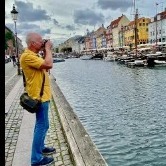M8 stays in hotel room; shoots in Japan with Canon G9
-
Recently Browsing 0 members
- No registered users viewing this page.
-
Similar Content
-
- 15 replies
- 714 views
-
- 5 replies
- 355 views
-
- 1 reply
- 175 views
-
- 5 replies
- 272 views
-
- 4 replies
- 237 views
-

.thumb.jpeg.bf8e8d71d50a0628dc010b0e8ac3189a.jpeg)


Recommended Posts
Join the conversation
You can post now and register later. If you have an account, sign in now to post with your account.
Note: Your post will require moderator approval before it will be visible.